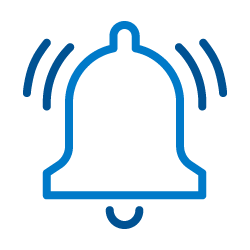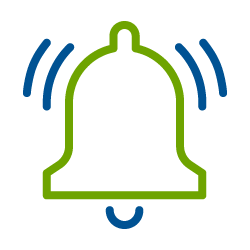Paying for College: Financial Aid

Once you’ve decided to go to college, it’s important to understand how you’ll pay for college. In general, college is paid for through money that’s been saved on your behalf by you or others, part-time or full-time employment you plan to have during college, and through various sources of financial aid. Your goal should be to borrow as little money as possible to pay for college. This is important so that you have a manageable student loan payment after graduation.
Facts about financial aid
Student financial aid in the United States is funding intended to help students pay educational expenses including tuition and fees, room and board, books and supplies, etc. for education at a college, university, or private school. It comes in the form of grants, scholarships, school loans, and work-study.
- Grants and scholarships are typically free money, which does not have to be paid back, but can have some terms and conditions.
- Work-study is aid that you receive while you work a campus job. It usually goes toward books and other costs.
- Loans are money that needs to be repaid. There are a variety of sources from which loans can be obtained and include federal, institutional, and private/alternative.
Other terms
- Tuition and fees are basic costs for your educational program at a specific institution.
- Cost of attendance typically includes tuition and fees, books and supplies, room and board, personal transportation, health insurance, and other required fees and expenses. You don’t necessarily need to borrow the full cost of attendance but only what you need to cover these costs.
Financial aid is not …
- Automatic. If you don’t fill out the FAFSA (Free Application for Federal Student Aid), you won’t receive a financial aid award letter. Make sure that the school you’re applying to is noted on the FAFSA.
- The only way to pay for school. You can save for college to pay for parts of college expenses (books, room and board, supplies, etc.). You can also apply for outside scholarships. Remember, financial aid is awarded, but it doesn’t always cover ALL of your college expenses. There are scholarships that you can apply for before you go to college as early as your sophomore year in high school. The most scholarship money is given out to high school seniors. Additionally, you can apply for outside scholarships while you’re in college through graduate school.
- All free. Remember, loans could be included in your financial aid award, and that is money that must be paid back. You have to decide if it’s worth taking it out. That’s determined by total tuition costs and how much you can afford to pay on your own.
- Money to flake off. On occasion, you may receive what is called a refund check. This is money you get back if your financial aid covered all of your expenses for each semester. Some students don’t receive anything back. Others can receive hundreds or thousands of dollars back. It’s tempting as a college student to spend it all on fun things. However, you may owe the school money the next semester if you don’t check. Additionally, you may not actually NEED the extra, and if you took out loans, you will have to pay this money back with interest. Financial aid is money that should be used only for school and the expenses associated with school.














